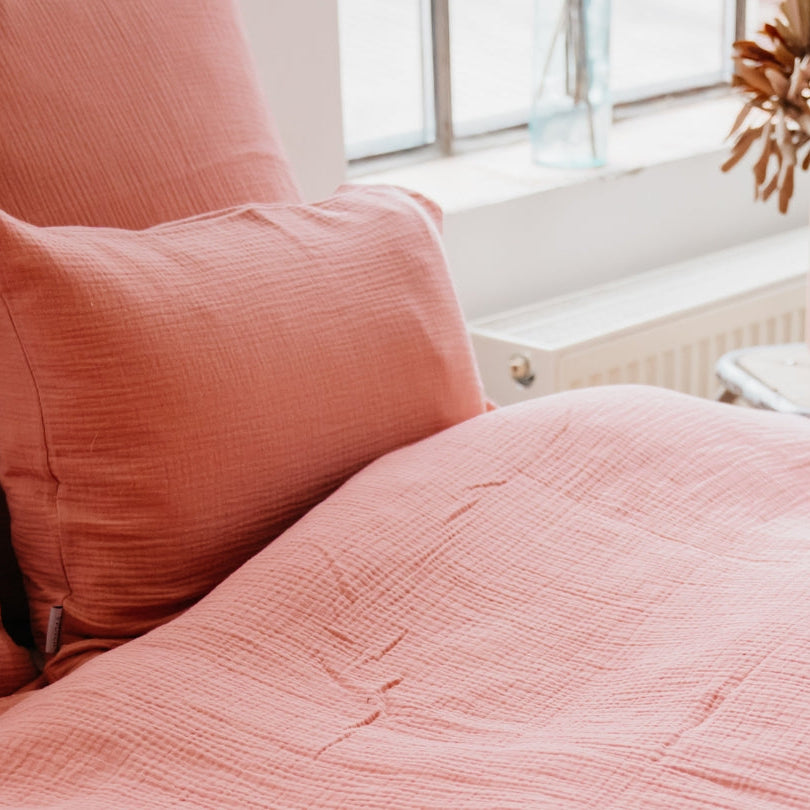Sleep hygiene – this somewhat strange-sounding word has something to do with how well you sleep. That's why we'd like to give you some tips today that will help us and hopefully you too to fall asleep and sleep through the night better.

Sleep is not a universal problem solver, but it is a problem improver! When we have had enough sleep, we can concentrate better, we are in a better mood and our health improves – internally and externally. But right now, many people are having trouble sleeping, mostly because of the worries and fears that are plaguing them. Children also have more and more psychological problems due to the changes, which also affect their sleeping behavior.
1. The bed is for sleeping! < /p>
Especially in the home office, the bed always tempts you to LiStay and "horizontaln work". An important part of sleep hygiene is dein bed to a Oplace of rest and relaxation ="auto"> and not as a workplace. Try to create your own workspace and stay in your bed and bedroom as little as possible.

2. Environment
Sleep hygiene starts with your sleeping environment. It is best to sleep in a slightly cool room. The ideal temperature should be between 16°C and 18°C, because that signals your body that it It's time to shut down. So you can snuggle up in your warm duvet! Your room should be as dark as possible and above all be quiet. However, some people also get a little noise or quiet music to fall asleep. Trye here to see what helps you.

3. Preparation is half the battle
It's hard to sleep on a full stomach, so try about three Stop eating hours before bedtime. Especially rich and fatty food can also hit the stomach. Exercise and fresh air are particularly helpful. An evening walk can help to sort your thoughts and give your body a little extra work. But make sure that you relax at least two hours before bed to calm down your body.
< img src="https://cdn.shopify.com/s/files/1/0079/8110/5225/files/IMG_8953_1024x1024.png?v=1616422845" alt="Woman with baby in bed">
4. Wind down
We all like to check at the end of the day still our Instagram feed, just not in bed and not too just before bedtime. The best thing to do is ban all electronic devices from your bedroom. So you can make your bedroom a place of rest and relaxation, without commitments. Establishing a regular evening routine can help if you're having trouble falling asleep. Your body gets used to the same routine and automatically adjusts to rest. That's why it's also helpful to always go to bed and get up at the same time. Try establishing a regular bedtime ritual, such as a relaxing tea with hops or lavender and some meditation or breathing exercises to calm you down.
If you're having thoughts when you fall asleep, it can help if you get rid of them beforehand. Just write down everything that's bothering you, it doesn't even have to be a diary. A simple To-Do list is enough so that you can be sure that you won't forget anything in the morning and won't have to deal with it before you fall asleep.
< span class="EOP SCXW53609672 BCX4" data-ccp-props='{"134233279":true,"335551550":6,"335551620":6,"335559685":720}'>
5. Just relax!
Easier said than done. But try not to fall asleep in spasms. Because that's how your body is under tension and you get excited. Try to think of something else, preferably something Snice, this has been proven in studies to be the best sleep aid.
< img src="https://cdn.shopify.com/s/files/1/0079/8110/5225/files/IMG_9583_1024x1024.png?v=1616423560" alt="Woman sleeping in bed">< /p>
Author: Isabell Gritzka






Comments
Hallo Isabell,
eben habe ich eine Podcastfolge zu diesem Thema aufgenommen und deinen Beitrag verlinkt (erscheint Anfang Februar im Podcast Frau Selbstbewusst). Ich habe meinen Hörerinnen versprochen, gute Ressourcen zum Thema Schlafhygiene zu empfehlen. Deinen Beitrag finde ich so schön geschrieben. Ich stelle immer wieder fest, dass es nicht nur Stress als Ursache gibt für Schlafstörungen, sondern auch stark überfordernde Situationen, die dann unsere Gefühle einfrieren und uns in einen Alarmzustand versetzen, der uns dann eben nicht schlafen lässt und die Tipps mit der Schlafhygiene gar nicht mehr helfen. Das noch als Ergänzung zu deiner tollen Übersicht. Wenn jemand merkt, dass das nicht hilft, was du da schreibst, dann empfehle ich, einen Traumatherapeuten aufzusuchen – einfach weil die Überforderung (die auch die Nebennieren erschöpfen) im Nervensystem hängt.
Viele Grüße aus Spanien